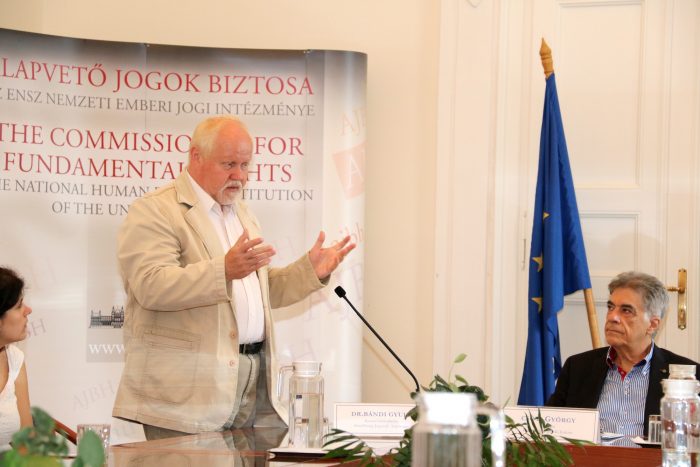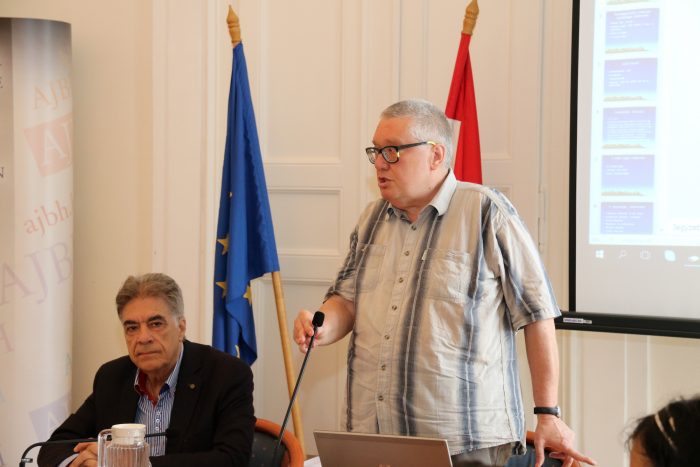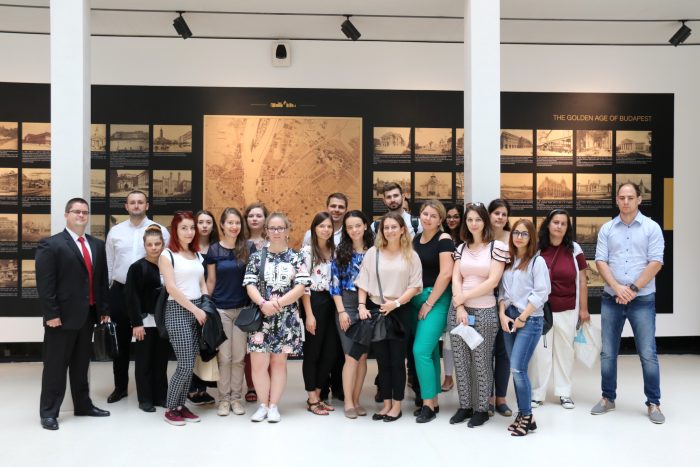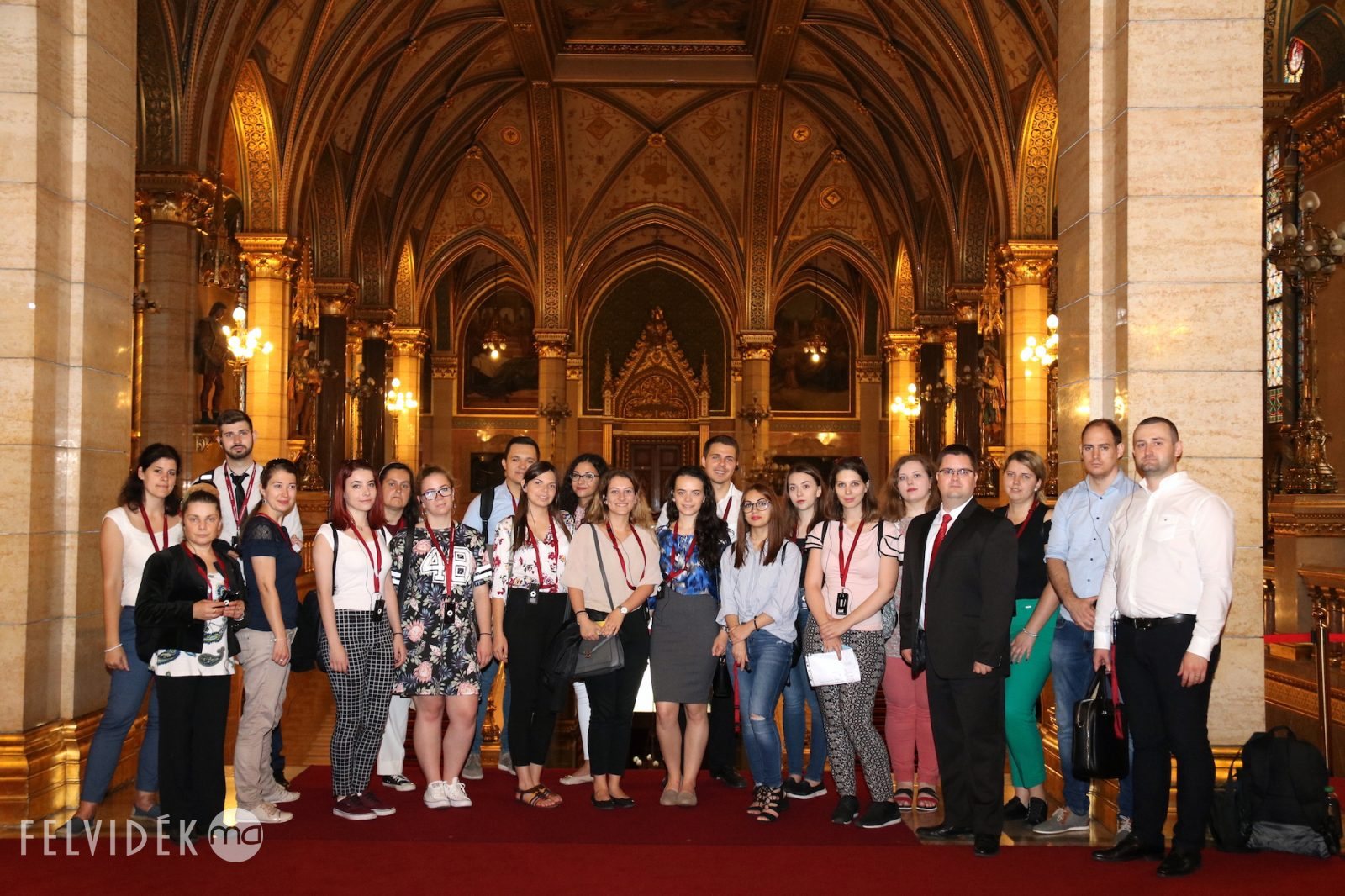On Wednesday 11 July, participants of the Summer University “Protection of Minorities in Europe”, organized by the Institute for the Protection of Minority Rights and the National Institute for Policy Research, flew to Budapest, where they visited several institutions to gain more experience and knowledge first-hand in daily practice.
in parliament
Enthusiastic participants from the Summer University toured the 114-year-old Parliament House with a group tour. The “tour” began from a staircase decorated with golden smoke plates. Arriving at the ornate staircase, young people can admire its neo-baroque style and neo-Renaissance motifs, then view the coronation in the dome hall: the sacred crown, the symbol of the state, the rule of law, the rule of law and the nationality of the country.
The tour guide showed them the lounge, and then their ride led them to the meeting room. The visit concluded with a visit to the Parliamentary Museum exhibition entitled “A Thousand Years of the Hungarian Legislature”.
In the office of the Commissioner for Fundamental Rights
György Csóti, Director of the Institute for the Protection of Minority Rights, received Dr. Professor Gyula Pandey, Deputy Commissioner for the Protection of the Interests of Future Generations, who is also Chairman of the Board of Trustees of the Foundation for the Protection of Minority Rights, Head of Department, and a highly experienced expert on the subject, Dr. Professor Gabor Cardos, Professor, is a member of the Board of Trustees of the Foundation for the Protection of Minority Rights.
Dr. Gyula Pandey has been promoting the work of the Board of Trustees of the Minority Rights Protection Foundation for some time, since 2015 and is the Chairman of the Board of Trustees. He was pleased to be able to head the presidency and participate in facilitating law enforcement procedures. An advocate for future generations gave a brief introduction to the Board of Grievances and its responsibilities. “The Office of the Commissioner for Fundamental Rights is a parliamentary institution, and Parliament elects the Commissioner and his two deputies by a two-thirds majority,” he said.
The two Deputy Ombudsmen are responsible for two different areas of expertise – one for the legal protection of Hungarian minorities abroad in Hungarian populated areas, and the other for the adequate legal protection of national minorities living in Hungary. He stressed that “the ombudsman is not an authority, his role is to play conscientiously in supervising the work of the administration.” Finally, he made a few complaints to the camp participants.

After the opening words d. Professor Gabor Cardos has given a lecture in the camps on the Council of Europe, the Language Charter for Minorities and Minorities, is a member of the Expert Committee, Professor and Candidate of Sciences for the Council of Europe’s Minority Protection Mechanism.
The Council of Europe, which taught us that the Pan-European Organization, which unites all European countries and has 47 members, made it impossible to become a member of Kosovo due to its unorganized relations with Serbia.
The Council also covered its main activities, which are the organization of cooperation in the field of human rights, minority rights and public law.

Regarding activities for the protection of minorities, the Council of Europe drew attention to two important documents: the Framework Convention for the Protection of National Minorities (ratified by 39 countries) and the European Charter for Regional or Minority Languages. In his presentation, he discussed in more detail the entry into force of the Conventions, the reasons for their creation and their content. During the interactive presentation, the participants had the opportunity to ask questions to the professor.
The afternoon program was also very colorful. Zsófia Elek gave a presentation entitled “European Minority Protection Perspectives in the OSCE System”, followed by Krisztián Manzinger, who presented the current situation to the public entitled “The Scope of Hungarian National Policy in the European Union”.
The Summer University “Protection of Minorities in Europe” runs until July 13 (Friday), with the aim of addressing young law students and lawyers who wish to work in the field of minority protection during their career, especially those who work in this capacity for Hungarians living abroad. They seek to address grievances.

The Institute for the Protection of Minority Rights and the National Institute for Policy Research wish to provide students with a professional workshop at the Summer University, where they have the opportunity to dialogue and exchange experiences with each other and with lecturers, as well as deepen their knowledge of international and European minority protection. In addition to the lectures, there will be other group sessions and round table discussions, as well as a variety of recreational and cultural activities to add color to the program.












































